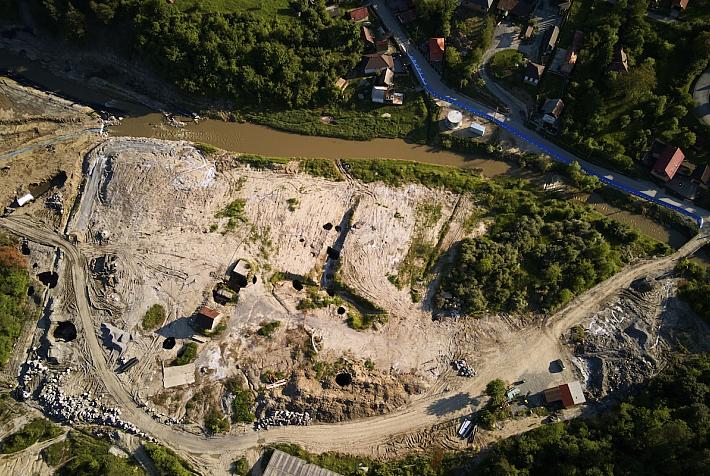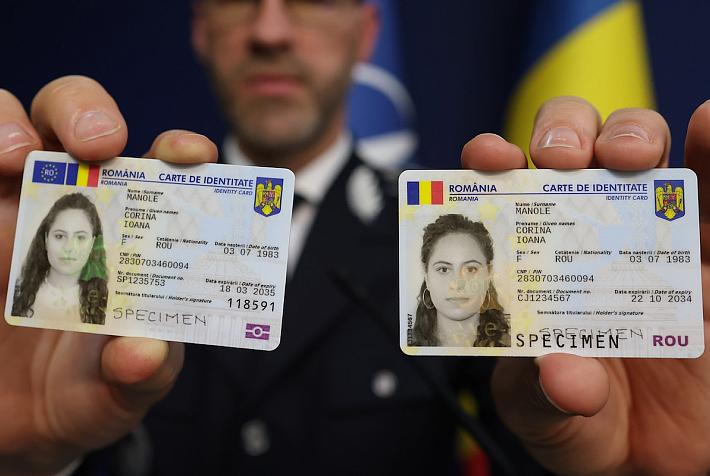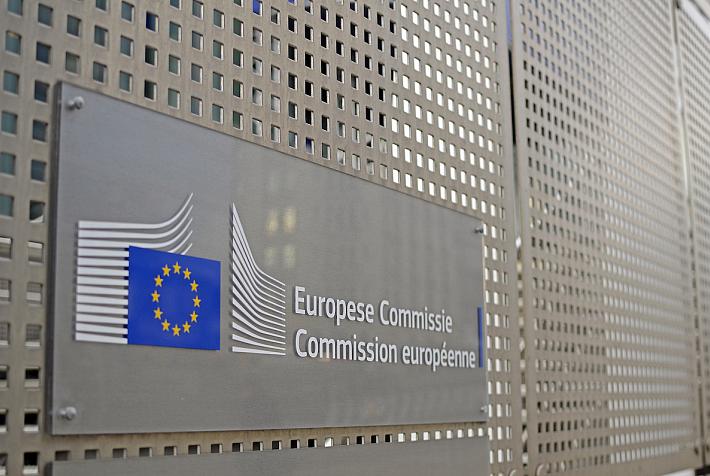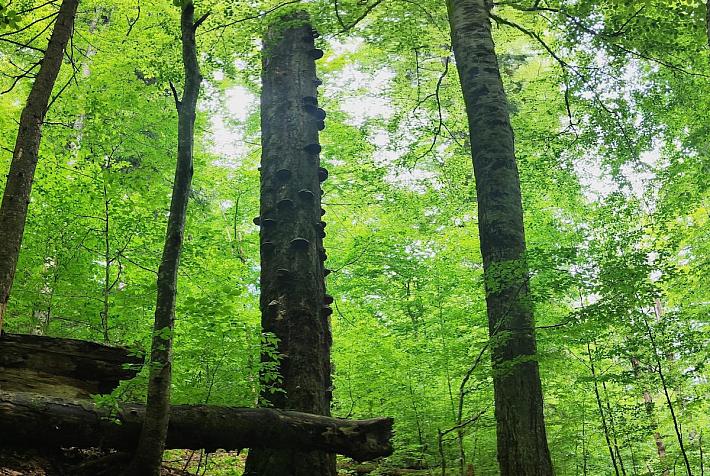How a dual education campus is taking shape in rural Romania

Non-profit BookLand started building last year a pre-university, dual-system campus in the village of Vultureşti, in southern Romania’s Argeş county. The campus will train pupils in various specializations, allowing them to work in industries ranging from hotels & restaurants to retail and food. More on how the project got off the ground and what it involves in this interview with Mihaela Petrovan, the founder and president of BookLand Association.
BookLand started as organizers of an urban book fair - hence its name - but it has since expanded its activity to renovating schools in rural areas. Now, it is building a campus for pupils in rural areas to train in the dual system, which is grounded in a public-private partnership where businesses identify training needs, which they provide in collaboration with the school.
The first six dual-system classes scheduled to open this fall will offer specializations leading to jobs such as receptionist, seller, bread baker or pastry chef, electromechanical technician, mechanic, or machine operator, among others. Besides laboratories, a sports field & sports hall, a library, and a performance hall, among other facilities, the campus will also have an orchard, a garden, and vegetable greenhouses, in addition to various workshops where pupils can train for their future jobs. The campus, built with private funding, is meant to be self-supporting, with the help of social businesses set up on site, where pupils can also train.
The campus in Vultureşti is the first in a planned network, the non-profit founder explains. It is meant as an answer to a host of issues, ranging from high dropout rates in rural areas to skill mismatch in the labor market and a deficit of blue and gray-collar employees that businesses have had to face.
Many of the jobs with numerous listings on local recruitment platforms are those that can be learned in the dual, vocational system, the non-profit points out. For instance, last year, the areas with the most job openings were retail, services, food industry, call center, tourism/HoReCa, transport & logistics, construction, manufacturing, IT, and banking, which are also the most attractive for candidates. At the same time, manual workers were also highly sought after, with increasingly better salaries. The most vacancies were registered in construction - 68,739, postal and courier activities - 38,522, restaurant-specific activities - 26,776, and road freight transport - 14,986, according to data provided by BookLand.
Worldwide, frontline job roles are predicted to see the largest growth in absolute terms of volume, according to the World Economic Forum’s Future of Jobs Report 2025. They include jobs such as farmworkers, delivery drivers, construction workers, salespersons, and food processing workers. Care economy jobs, such as nursing professionals, social work and counseling professionals, and personal care aides, are also expected to grow significantly over the next five years, alongside education roles, according to the same source.
Meanwhile, the country’s rural area continues to have significantly higher school dropout rates than the urban one. According to the Education Ministry’s 2024 report on the state of pre-university education, for the academic year 2022/2023, the cohort dropout rate for pupils in urban areas from the 2014-2022 cohort is 1.2%, an increase compared to the previous cohort. When it comes to pupils in rural areas, the same indicator increases by over one p.p. compared to the previous school year, reaching 16.5%. One fifth (20.3%) of the 2014-2022 school cohort was lost during primary and secondary education in rural areas.
At the same time, of the 2,370,000 students enrolled in pre-university education in the 2023-2024 school year, only 174,000 were in a form of vocational or post-secondary education, according to data from the National Institute of Statistics (INS) presented by BookLand. Of the almost 180,000 pupils enrolled in the eighth grade, only 9,000 opted for the dual system. There is room for improvement, the non-profit explains, as it points to the few options available to those who abandon education.
More on how the project of the campus fits into this landscape and what its planned role is in the interview below.
You started the construction works last year on the dual-system vocational campus in Vulturești. Why did you decide to start this project? How did the journey from idea to implementation go?
Mihaela Petrovan: We had a dream, both literally and figuratively. A dream where I saw in detail what it would look like and what would happen on a campus built in a rural area, where all children can get the chance to develop their future, regardless of their home circumstances. We started by looking for a plot of land. We didn’t find it on the first try or easily but the road began to take shape gradually. The design phase followed, where the architectural vision took our plans to an entirely different level, one that motivated us even more strongly to get to work! To talk next about the bureaucratic entanglement would be pointless because sometimes it seems a never-ending story. The plot we found in the village of Vulturești, in Argeș county, was, in fact, a pasture: hills covered with wildflowers, shrubs, and trees, where cows grazed, practically a clearing bordered by forest. Here, in September 2024, we laid the cornerstone for our first pre-university dual-system vocational campus (and the first such campus built in a village in Romania). What followed you can see in our Workers’ Chronicle (Cronica Muncitorească), a video series where we document the construction site work, with everything it entails.
After renovating and endowing village schools, we realized we risk still, in a while, no longer having children entering their halls. The situation is known: entire families are leaving the country, leaving behind villages where only the elderly remain. If we don’t roll up our sleeves now to get to work, this is what the future will look like in a couple of years: a country with deserted villages, a mostly aged population, an acute labor market crisis (that we already feel). This is why building this campus is the concrete solution to help the young in rural areas throughout the entire school period, offering them access to quality education and solid professional training.
Why Vulturești, Argeș? What determined the location choice? How does it fit into BookLand’s other initiatives in rural areas?
Ever since we were only dreaming of what we would like to happen at the campus, the authorities in Argeș showed interest in the project and joined the vision we proposed for dual-system learning in rural areas. The honesty that Argeș residents communicated to me and the trust with which we were received were decisive. But, the turn of other counties will come for sure. Talks are happening already and we are taking calculated and specific steps towards building other campuses in the country, of course, also in villages; we hope to have one in every county.
As for the other BookLand projects, these are also for the benefit of children in rural areas. This year, we have started working on the Handbook of Trades/ (Manualul de Meserii), a guidebook that will encompass updated, well-documented information on the jobs pupils can learn at the campus in Vulturești. Unfortunately, the traditional education system doesn’t value enough giving young people adequate guidance in choosing a job, and the consequences are telling. We rarely find the right people for the jobs that are right for them. Few manage to find work in the area they trained for, and we anyway talk about largely theoretical training, not also practical. This is why the handbook will help pupils discover what is right for them, what the respective job entails, and what perspectives it offers. Furthermore, it is a handbook co-authored with the help of experienced specialists and illustrated with the drawings of talented children living in rural areas. It is their book, and they contribute to it to the fullest!
For children in rural areas, we also organize Cooltural Days (Zile Coolturale), trips where cultural discoveries and fun make a good team; Trade Days (Zile Meseriase), with workshops where architects teach them to design and work with various items; and our camps, a mix of fun and educational experiences in the middle of nature. We are also currently running the second edition of the BookLand Scholarships, with which we support excellence in education in rural areas. In 2024, we offered three such scholarships, and now we are looking for new recipients to support, covering in full their expenses with transportation, accommodation, meals, school supplies, and other things they need for their next seven years of study, in high school and university.
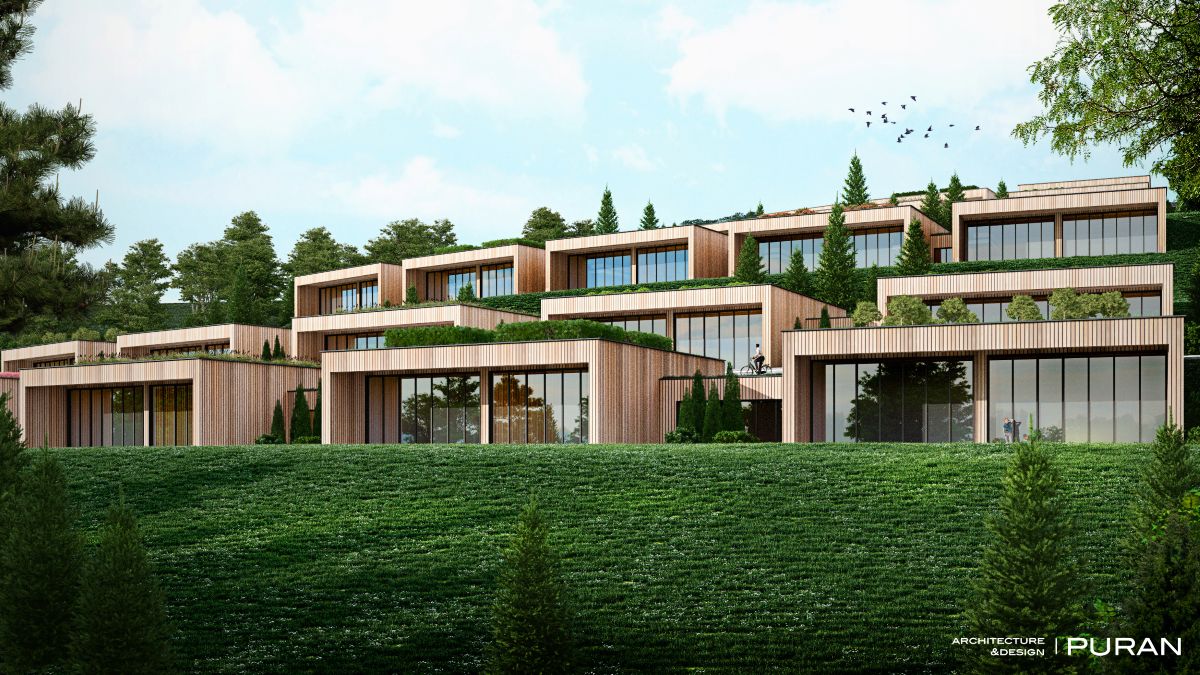
What is the stage of the works? Were there unexpected aspects involved in the process?
We have eight finished terraces and have moved on to a new stage: preparing the enforced structures and pouring the foundation of the retaining wall - to share some of the technical details J. We also had the chance to receive help from detainees serving their sentences at Mioveni Penitentiary who wished to lend a hand in building the campus. Many of them are qualified workers, who are experienced in construction site work. People who followed our activity kept asking me if I was not afraid to have them around, and I kept answering, “No.” I have seen pain and regret in their eyes. I came to know some of their life stories. These are people who had terrible childhoods and no support from their families. Many of them are, in their turn, parents and felt the need to do something for the future of the country of their children, whom they miss and wish only the best for. I think it is important to support their reintegration into society and help them start on a different path.
How is the campus construction funded? How do you plan to fund its operation once it opens?
Everything we do, we do with private money. We have hundreds of companies and generous entrepreneurs by our side who prioritize education, and their support keeps BookLand moving. We have partners who have accompanied us for years, turning into long-term companions. But we also have new people we have met recently and who will join us as partners in the dual system we are implementing at the campus. As for the involvement, many companies choose to use the fiscal instruments available (and we are grateful for that), like the 177 form, through which they redirect up to 20% of the profit tax paid to the state to us. Sponsorships are not always in money but also in services or products, which is just as welcome. At the same time, the concept of working teambuilding (teambuilding muncitoresc) we propose to companies also supports our educational mission. Then, once the campus opens its doors, it will generate revenues because it has been designed to be self-supporting. We will develop social businesses: we will open a hairdresser, coffee shop, bakery shop, laundry, and other small enterprises to generate revenues and where the young people can have traineeships.
Dual-system education entails a partnership between companies, the school, and the local administration. What role will BookLand have in managing the campus and its activity after the opening?
The dual-system campus we are building encourages the reintroduction in the professional training cycle of jobs that our country needs so much (and on which dust settled since trade schools closed), but also the prosperity of rural communities. Here, education meets sustainable economic development, providing the young with the jobs they want, a better living standard, and the motivation to stay in their country. It is a vision we have 100% faith in and will implement step by step. After finalizing the construction, we will be responsible for ensuring the smooth running of the entire educational process on the campus: we will register the students, select the teaching staff, establish partnerships with the businesses where pupils will train, ensure the endowment and equipment needed for the classes and lab hours, we will administer the social enterprises and provide a favorable climate for learning and the children’s personal development. We will handle everything related to the educational, administrative, and logistical areas, establishing a solid bridge between education and industries, between the young generations and businesses.
The campus will cover the pre-university education cycles, starting with primary education. Will all be available when the campus opens, or will they be added at a later stage? Why did you decide to expand the educational offer to the cycles preceding high school?
From the beginning, we will provide all educational cycles: primary, lower secondary, high school, and post-secondary non-tertiary (postliceal) because it is important to guarantee a continuous and complete educational journey. The fact that we accompany the children since the preparatory class helps us establish a healthy and strong foundation upon which we can then develop responsible, empathic adults, tomorrow’s professionals. At the campus, the pupils will have a coherent and stable educational environment, and having all the educational cycles in one place can stimulate collaboration between pupils. The younger ones can learn from the older ones. They can take a peek at the workshops when pupils in more advanced classes do their practical training. They can help each other with their daily chores. They will learn from one another and develop in a spirit of solidarity.
How large do you expect the needed teaching staff to be? Who will handle their recruitment? How do you expect the process to go?
Selecting the teachers is a rigorous process we have already started. We want by our side only passionate, patient teachers with a clear vision of what shaping young beings means. At this point, we are focused on interviewing candidates for the first stage of the campus – 20 teachers, six instructors, and the administrative staff (in total, 50 people). With them, we will open the first classes in September 2025: the preparatory, fifth, and ninth grades in the theoretical and dual-system profiles. Every year, as we will have more classes, the number of teachers on the team will increase. At the same time, we organize meetings with parents and children in the communes in Argeș county to present them our educational offer.
BookLand expanded its focus from initiatives meant to encourage interest in reading to building a dual-system educational campus. What were the key moments along the way and what motivated this expansion of the activity?
Indeed, we started as organizers of an urban book fair, hence our name, BookLand. It was the love of books that took us to the place where this passion is acquired, the school. But, if those schools have nothing, what kind of passion can they inspire? When we understood we could do more good by helping poor schools in rural areas, we felt we truly found the role of BookLand. This is how we renovated 80 schools and kindergartens in rural areas between 2020 and 2024 under the slogan “Together we build people.” Then, identifying the needs of the young, we have launched other projects tackling education in a complex, nonformal way, from multiple perspectives. We have the online columns Teenager Thoughts (Gânduri adolescentine), an animated series about the issues teenagers are confronted with, or Inspiraţionalul, where we highlight projects of interest to the young and add to their general knowledge. Another project, the BookLand Evolution Meetings, offers teenagers the chance to meet personalities active in various areas and engage in conversation with them. These are decisive meetings that can determine whether they will embrace certain careers. Beginning this year, we invite the young from all over the country, not just Bucharest, to these meetings.
Between 2020 and 2024, BookLand worked to endow and refurbish several schools in rural areas. How would you describe this stage in the association’s activity? How did the plans you have fit the reality on the ground?
For the school renovations, we reached 70 communities in 40 counties in four years, and we could see the issues rural Romania is facing. At the same time, we could encounter the beautiful side of this country. We worked closely with exceptional people. We have come to know dedicated principals and teachers who were our trusted partners. We had by our side families who contributed to welcoming the workers properly by cooking them meals or offering accommodation. We collaborated with mayors and councilors who supported us by covering a part of the labor cost or the transport of construction materials from the local budget. In all these years, we have become convinced that there are enough people who believe in the power of togetherness. What else has this period shown? The young people we meet in rural villages have a huge potential that we need to support. This is why we decided to move on to the next phase and have started building ourselves: in this way, we will build something lasting.
What will you focus your activity on after the opening of the Vulturești campus?
In September 2025, the BookLand Campus will open its doors for the first 300 pupils; there will be many things to arrange, for sure, because at maximum capacity, we will be able to welcome 1,200 pupils. We will continue to develop and expand the educational offer by inviting by our side businesses willing to support the training of their future employees for the specialties they need. This will be our continuous effort. We will pay attention not only to the results in the classroom and the practical labs. We will organize theater, music, and fine arts courses, sports, and scientific competitions, invite mentors and professionals to lecture at the campus, and hold open-door weekends for the entire community. And let’s not forget that we have to establish the social businesses, which will bring many benefits.
*The answers were provided in Romanian and translated into English by Romania Insider.
(Photos: BookLand)
simona@romania-insider.com







